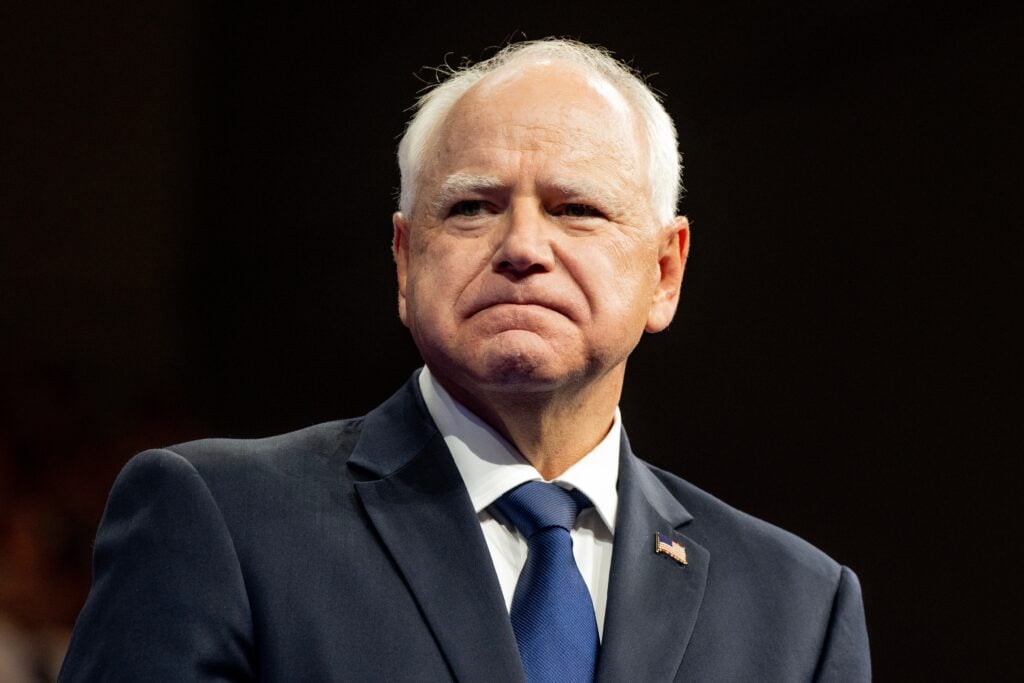In a 2006 survey, Walz said he opposed ‘a policy of pre-emptive military strikes against countries deemed to be a threat to U.S. national security.’
Democratic vice presidential nominee Tim Walz said in a 2006 survey that he would eliminate federal funding for national missile defense, a technology experts say is crucial to fending off a Chinese or Russian attack on the United States.
Walz said he put a great deal of time and effort into filling out the survey, in which he laid out his views on a series of national security and other policy issues.
“I took the time, in about three hours, to fill out every single portion of that questionnaire in great detail,” Walz said in a 2006 congressional debate. In that survey, from the non-partisan group Vote Smart, Walz also indicated he opposed “a policy of pre-emptive military strikes against countries deemed to be a threat to U.S. national security.”
Walz’s responses reflect decades of skepticism from many Democrats toward domestic missile defense and put him in the dovish wing of the Democratic Party.
The United States maintains a number of domestic missile defense sites through the Missile Defense Agency. The former director of the Pentagon’s Office of Missile Defense policy, Peppi DeBiaso, credits those sites with protecting the country against a potential long-range missile attack.
Detractors of domestic missile defense, DeBiaso wrote in a 2022 Center for Strategic and International Studies essay, discount “the contribution missile defense makes to U.S. deterrence and defense strategy,” particularly with relation to North Korea and Iran.
The technology is also essential to the protection of American allies. In fact, the Department of Defense on Sunday authorized the deployment of a Terminal High Altitude Area Defense system, known as THAAD, to bolster Israel’s domestic missile defense capabilities as the Jewish state plans an attack on Iran.
“THAAD has been proven in combat operationally and has a great test record,” an expert on missile defense at the Center for Strategic and International Studies, Tom Karako, told the Wall Street Journal.
Walz, whose campaign did not respond to a request for comment, was in the midst of his first congressional run at the time he responded to the questionnaire and participated in the subsequent debate.
The other responses he provided on matters of national security evince similarly dovish foreign policy views. He did not answer questions regarding whether the United States should withdraw from Iraq or send more troops and indicated the United States should use “diplomatic and economic pressure” rather than “military force” to combat North Korea’s nuclear weapons program. He also endorsed “the creation of a Palestinian state.”


